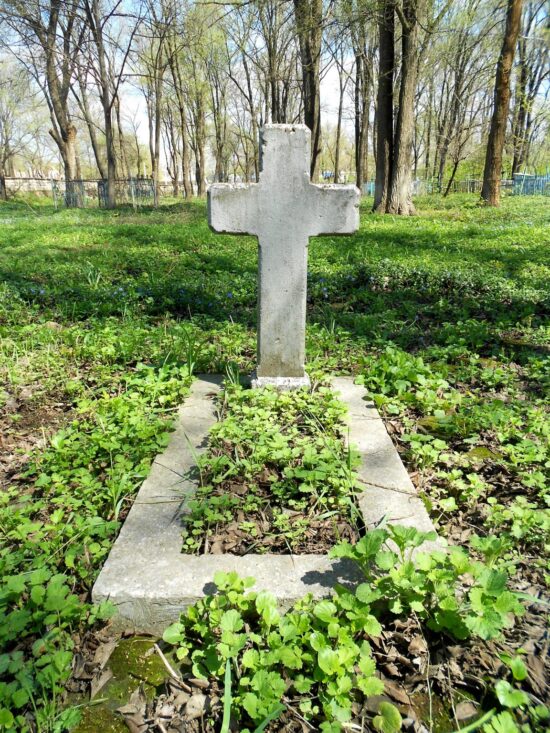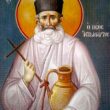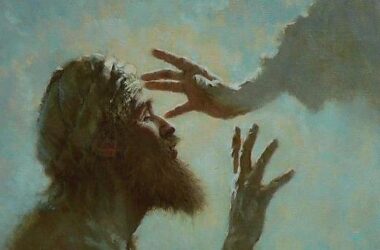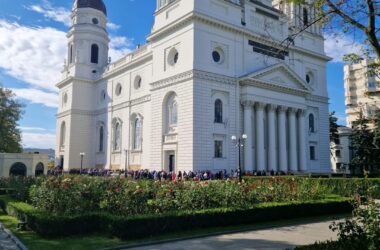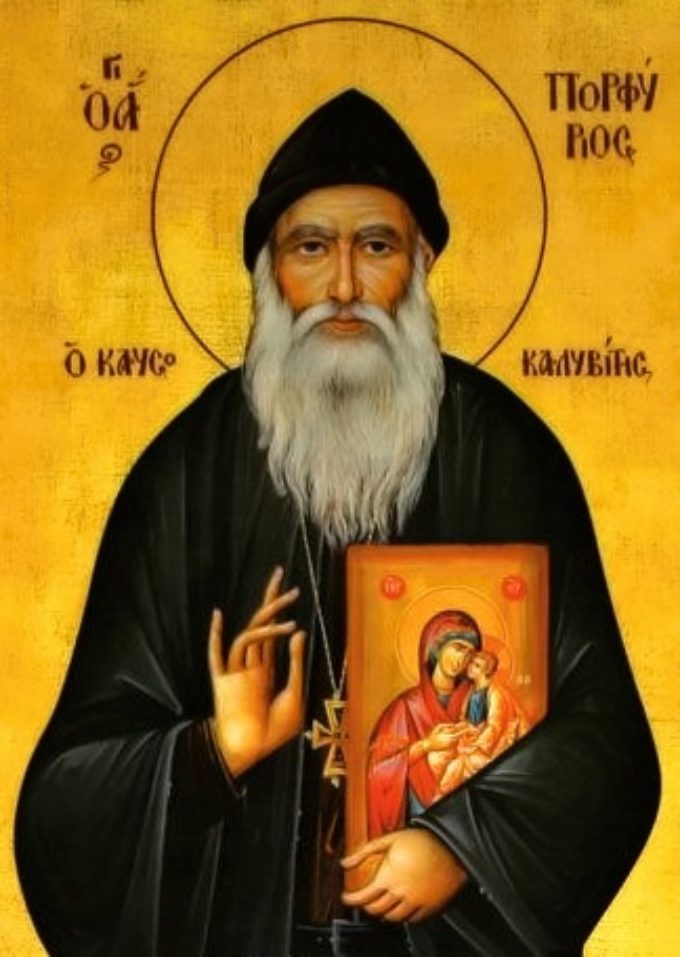In the morning of November 30, 1974, on the commemoration of the Holy Apostle Andrew, while the Venerable One was in his cell on Mount Athos, praying the Jesus prayer while kneeling on his bed, a young man suddenly appeared before him and said:
‘We must go, for you are a witness’.
‘A witness? He asked in astonishment’.
‘Yes, a witness in court’.
Immediately, without understanding how, he found himself in the cemetery of Konitsa, in front of a grave. The young man, with a gentle movement, opened the grave, and the Venerable One saw an old woman inside whom he knew. Although she was half decayed and emitted an unbearable stench, he did not turn his face away from her. He entered the grave and embraced her with great sorrow. She cried out, “Father, help me! Father, help me!” Then she said:
‘Tell me, has there ever been a time when you asked me for something and I did not give it to you?’
‘You have always given me even more than I asked for’, the Venerable One replied.
Then that young man, who was her guardian angel and knew everything about that soul, said to her, “Sleep in peace.” And, covering the grave, he said to Elder Paisios, “Let’s go.” And immediately the Venerable One found himself in the same place, kneeling on his bed. At that moment, he understood that the soul needed much prayer because, when she was wealthy, she did not give alms to her poor fellow villagers, but she spared no expense for him because she loved him dearly.
The Venerable One prayed fervently for that soul. After two months, on January 30, 1975 he received notification that God had heard his prayer. Just as before, he was reciting the Jesus prayer when suddenly he saw before him a chasm like a funnel, filled with many people, including bishops, tormented and crying out in despair. High above this terrifying abyss, he saw the elderly woman sitting on a white cloud. Beside her was the young man, her guardian angel, who was wiping and cleansing her face, which resembled that of a little girl. The Venerable One embraced her once again, but this time with joy. Then he stepped aside a little, so that the condemned would not see him and their torment would not increase, and he sang “Holy God” as a thanksgiving to God.
Certainly, such cases were numerous in the life of the Venerable One, as two years earlier he had written in one of his letters: “God helps the departed and at the same time reveals to monks an indescribable joy, which He bestows upon them as a result of their prayer made with sorrow for the departed. As if saying to them, ‘Do not worry, my children, I have also helped the departed ones.'”[1] [1]Pious Paisios of Mount Athos- Epistles, Evangelismos Publishing House, Bucharest, 2005, page 17.
Excerpt from Saint Paisios of Mount Athos – Evangelismos Publishing House.

